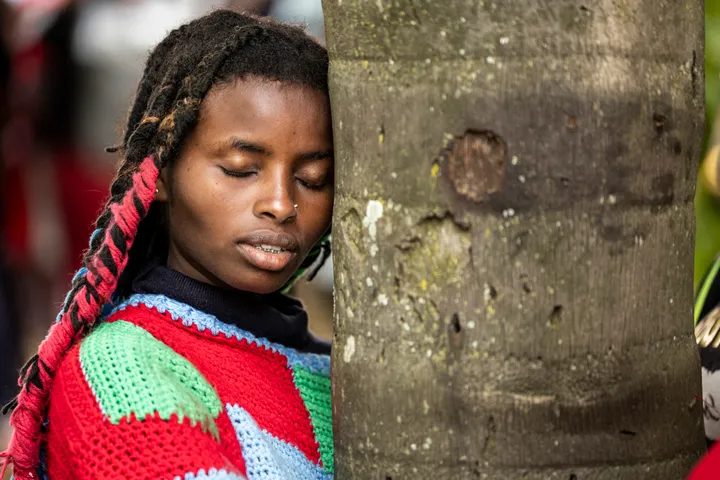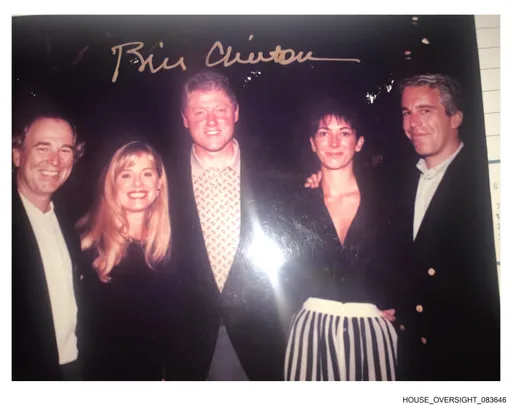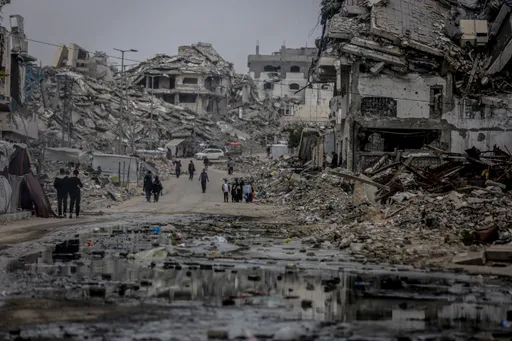With the United Nations climate talks wrapping up in Dubai, foundations and other funders pledged at least $2.1B in new financing to reduce climate impacts, especially from agriculture, and increasing help for vulnerable communities.
The estimated pledges, which do not represent a complete account of philanthropic commitments at COP28, came from a mix of foundations and private companies with some made in partnership with governments.
They will be delivered over a range of timelines. For the first time, the Global Fund to Fight AIDS, Tuberculosis and Malaria sent a delegation to the conference, pledging to spend 70% of its budget, about $9B, in the 50 most climate vulnerable countries over the next three years.
"The honest answer is that the global health community, including us, was so focused on COVID-19, that we probably didn’t pay enough attention to all the signs of what climate change was doing to global health," said Peter Sands, CEO of the Global Fund.
The first Business & Philanthropy forum offered foundations, donors and corporations a larger formal role at a time when COP28 leaders are looking to secure more financing from the private sector.
Ozawa Bineshi Albert, co-executive director of the Climate Justice Alliance, which advocates for people and organisations in frontline communities affected by climate change, said it’s a welcome idea to increase funding for Indigenous peoples, who she says always face an uphill battle to be heard in these meetings.
Albert said the Business & Philanthropy forum can be helpful, but government policy and regulation, especially in reducing carbon production, would be far more helpful.
“We also are there encouraging the fossil fuel phase out agenda and mainstreaming that,” she said of her organisation's role at the summit.
Along with multiple other philanthropic funders, Sequoia announced a $450M commitment to target the reduction of methane and other pollutants over three years.
The Bill & Melinda Gates Foundation, which has long focused on food insecurity through developing tools and technology to help farmers adapt to climate change, announced a new commitment of $100M along with the United Arab Emirates, who committed another $100M.
Campaigners losing faith
Uganda's Vanessa Nakate, a UNICEF Goodwill Ambassador, said activists were tired of being disappointed at the annual United Nations conferences to battle climate change.
She was speaking after the latest COP28 draft agreement dropped any mention of winding down fossil fuels, speaking only of a potential reduction in consumption and production.
"It can be tiring to keep coming to these places and to be constantly disappointed by the decisions that are made," the 27-year-old told a press conference.
"For this COP to be truly a success, it has to address fossil fuels. "If leaders fail to address the root cause of the climate crisis after 28 years of climate conferences, then they aren't only failing us, but they're making us lose trust in the entire COP process."
Nakate's comments are reminiscent of 20-year-old Swedish activist Greta Thunberg, who famously dismissed world leaders' promises on climate change as just "blah, blah, blah". Thunberg, who in January said it was "ridiculous" that the United Arab Emirates' state oil company chief was the COP28 president, last attended a COP summit in 2021.
'To cure malaria, you don't invite the mosquitoes'
Some activists were in tears over the latest text. Joseph Sikulu of Pacific Island Warriors took several seconds to compose himself before addressing the press conference with tears rolling down his cheeks.
Nakate said: "What is happening here is unacceptable. What is happening is unjust. What is happening is unfair." "This text that we saw yesterday is sinking the lifeboat for humanity," she added, calling it a "death sen tence for communities".
"We know that in this case, there are over 2,400 fossil fuel lobbyists that have a lot of control and power over this process," said the Ugandan.
"And we must call out that sabotage, we must call out the power. We must hold the fossil fuel companies accountable for the climate crisis."
"Some people might say that if you are discussing how to cure malaria, you don't invite the mosquitoes," Nakate added.
























